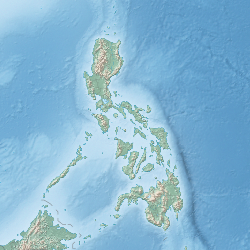| Iloilo Fish Port Complex | |
|---|---|
 | |
Location in Philippines | |
| Location | |
| Location | Iloilo City Proper, Iloilo City, Philippines |
| Coordinates | 10°41′24″N122°33′27″E / 10.69000°N 122.55750°E |
| Details | |
| Opened | 1976 |
| Operated by | Philippine Fisheries Development Authority |
| Owned by | Iloilo City Government |
| Type of harbour | fishing port |
| Size | 21 hectares (52 acres) |
| Statistics | |
| Website pfda.gov.ph | |
The Iloilo Fish Port Complex (IFPC) is a fishing port and fish market in Iloilo City, Philippines. It serves as a major center for fish trading and marine product processing in the Visayas region. The complex is situated on a 21-hectare reclaimed area in Barangay Tanza, Iloilo City Proper. [1]
Contents
IFPC has been the primary landing site for bagnetters and various fishing bancas from Iloilo City and its surrounding towns. The location has positioned the port complex as the principal source of fish for Iloilo City’s major public markets and adjacent municipalities.
In March 2022, the fish port complex was granted ₱570 million for the expansion of its facilities which will include the construction of a new fish processing plant, establishment of a fish canning facility and the construction of an alternative energy source. [2] [3] The rehabilitation was completed in 2025. [4]

